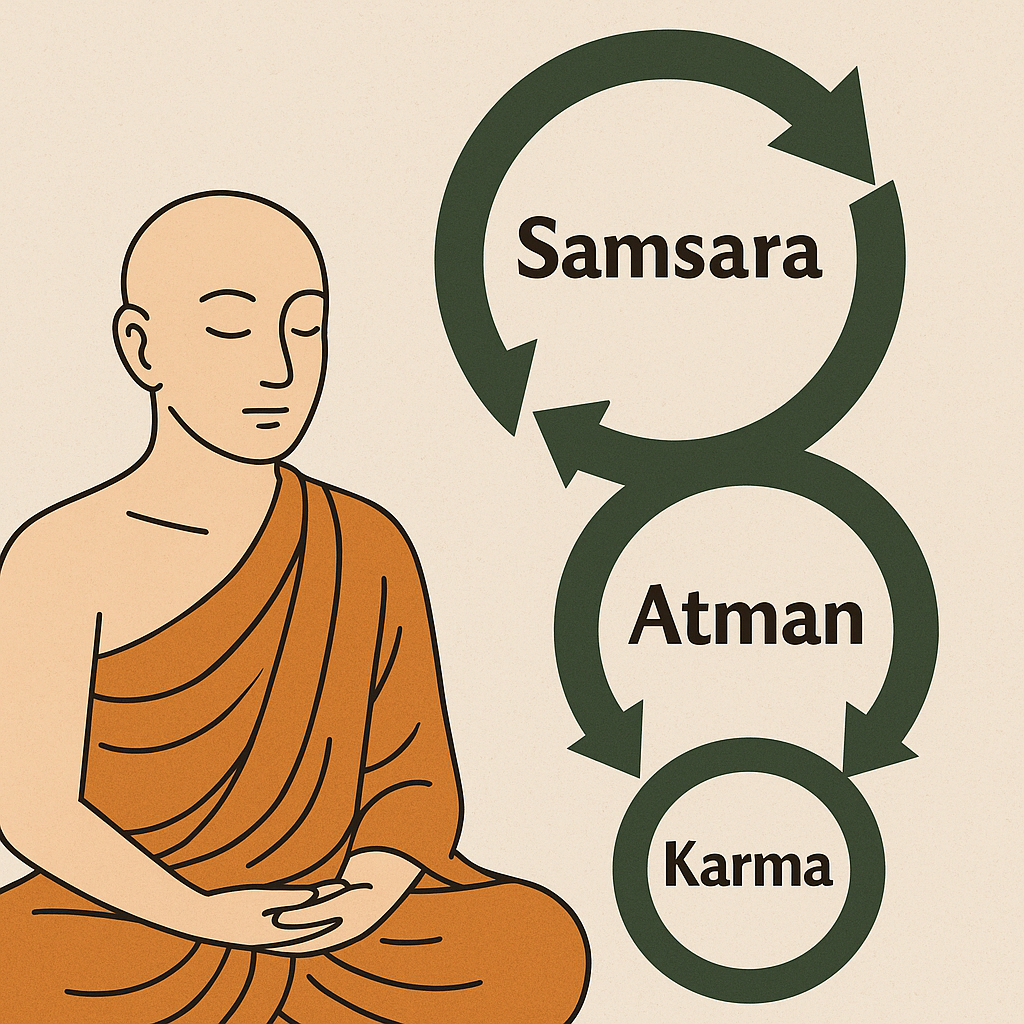During my meditation interview with my teacher last week (June 17th), I asked the following question:
“Teacher, is the samadhi that yogis speak of the same as the samadhi that Buddha taught?”
“Yes, it is. They are the same.”
Starting from this conversation, my teacher explained several differences between the views of yogis and Buddha’s teachings.
“The śramaṇas have no concept of nirvana. For them, the purpose of practice is union with Brahma, that is, union with God. They do not know about nirvana, which exists on the opposite side of saṃskāra-dharma (有爲法, conditioned phenomena).
They say that union with Brahma is the end of samsara. However, Buddha taught that even if one is reborn as Brahma, this does not mean eternal liberation from the cycle of samsara, and one will eventually be reborn as another being. Therefore, rebirth as Brahma cannot be the ultimate goal of practice.”
They say that union with Brahma is the end of samsara. However, Buddha taught that even if one is reborn as Brahma, this does not mean eternal liberation from the cycle of samsara, and one will eventually be reborn as another being. Therefore, rebirth as Brahma cannot be the ultimate goal of practice.”
“Yogis speak of atman (我, ātman), while Buddha teaches anatta (無我, anātman), which is non-self.”
“From the perspective of sentient beings who undergo samsara, it is acceptable to say that atman (我) exists. Where is the basis for the identity between your past life and your present life? That can be called atman (我). And the true nature of that is precisely karma.”
In fact, when my teacher spoke as if he was acknowledging the existence of atman (我), I was quite surprised. This is because Buddha thoroughly taught anatta (non-self). However, after hearing the subsequent explanation (that atman may exist, but its essence is karma), my misunderstanding was cleared.
As I understand it, there is no fixed subject in samsara. Rather, it is the stream of mental and physical phenomena caused by karmic action that continues from one life to the next, even when one life ends. My teacher explained that even as appearances change through samsara, the basis for identity between those lives can be called atman (我), and its essence is precisely karma.
Viewed this way, there is no problem with acknowledging atman. However, atman (我) as conceptualized through karmic action is completely different from the view of yogis (or śramaṇas, brahmins, Hindus) who see atman as an eternal, imperishable substance.
Moreover, when viewed this way, Buddha’s analogy in the Digha Nikaya (I cannot remember exactly which sutta) describing the nature of samsara becomes clearer:
“Like a person going from this village to that village.”
―The Buddha
Atman (我) may be said to exist. It serves as the basis for distinguishing one sentient being undergoing samsara from another, and as the basis for the connective identity of one being’s past life, present life, and future life. However, it is merely the expression of how karma operates, condensed into a single noun.


답글 남기기